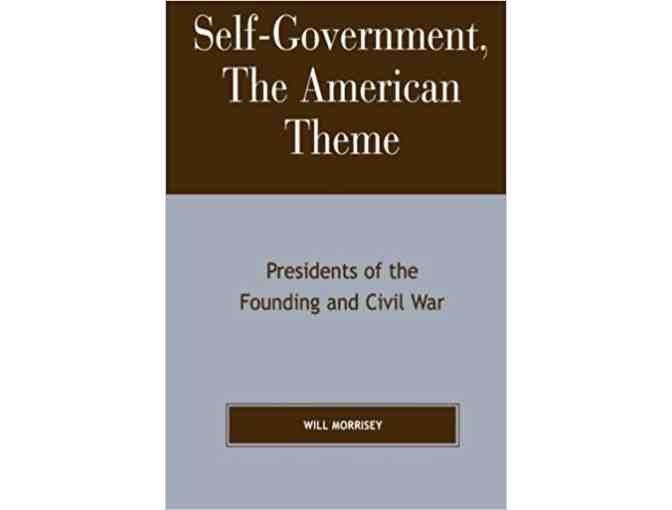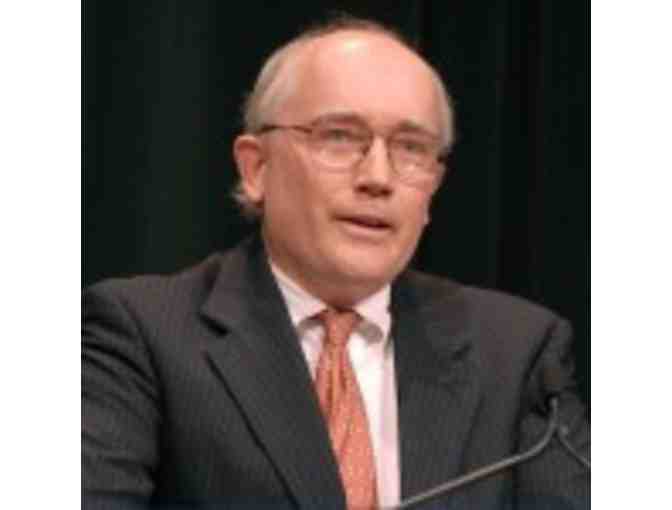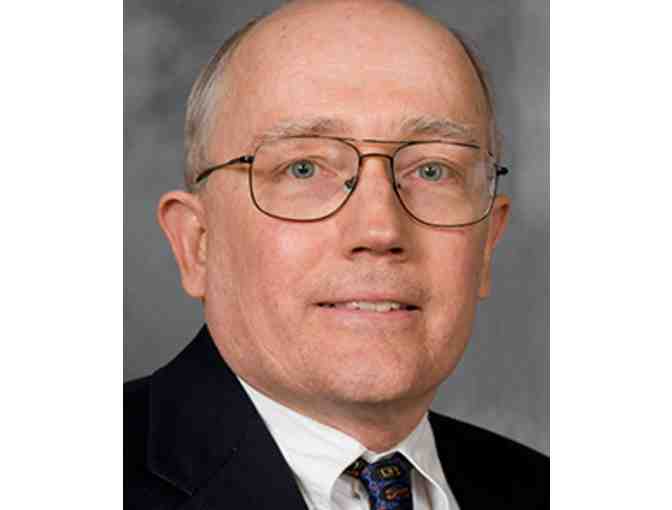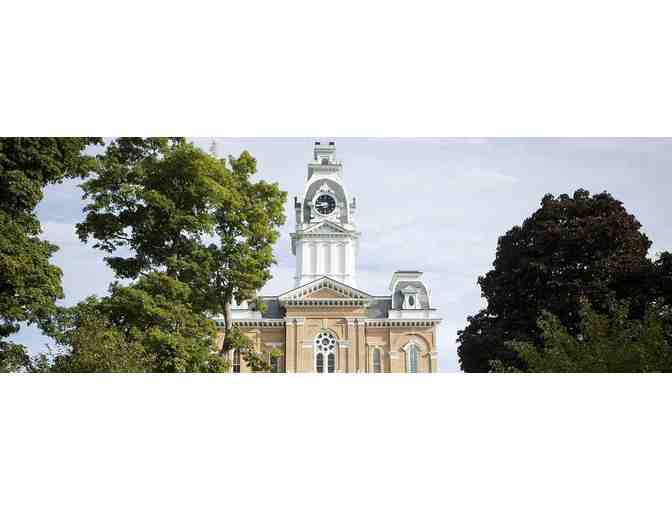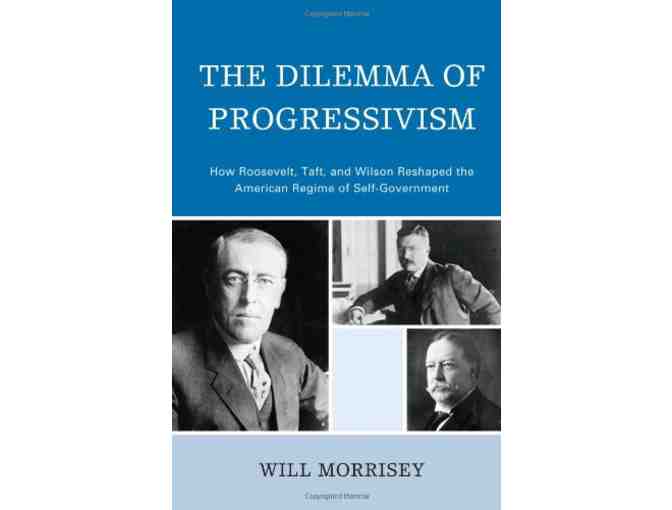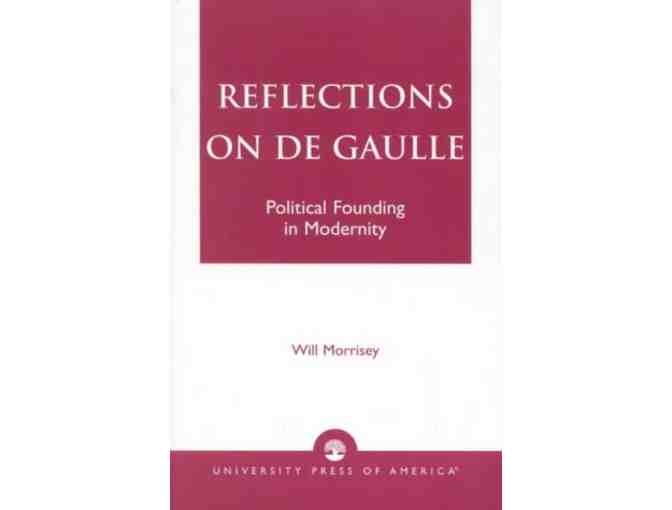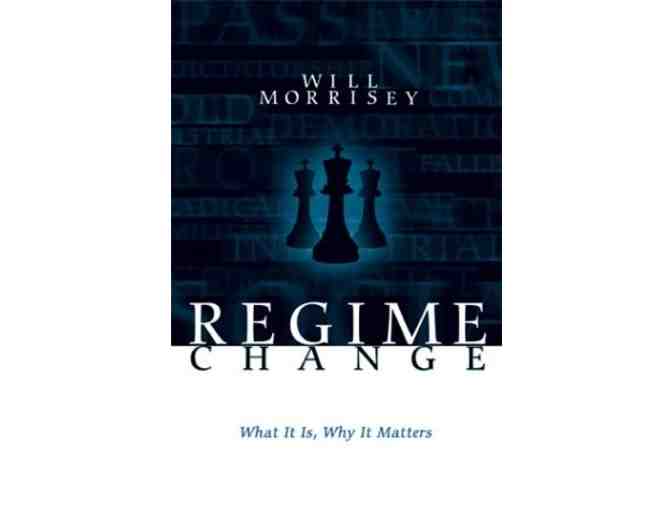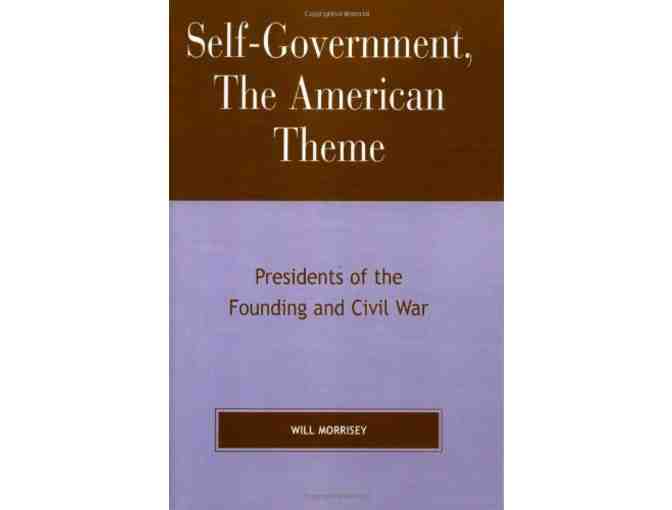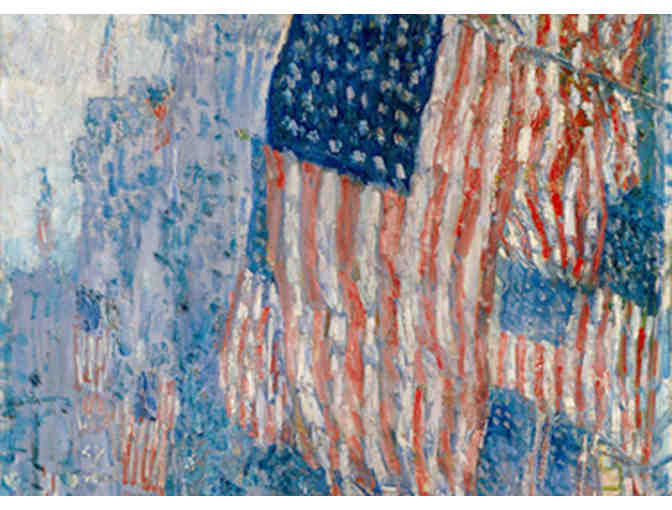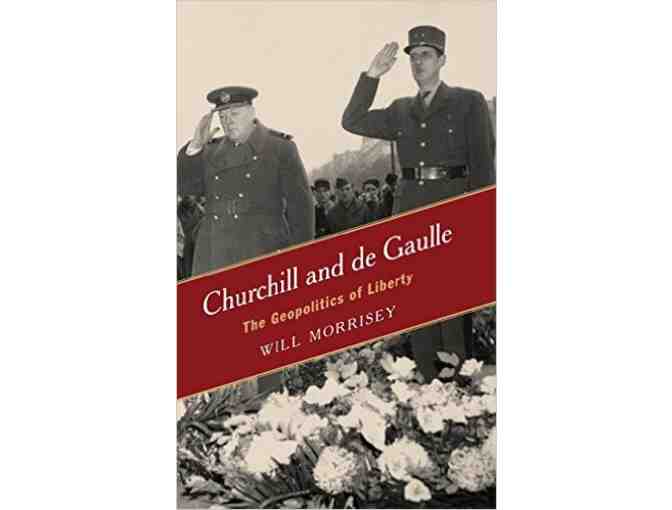Autographed Books
"The American Theme: Presidents of the Founding and Civil War" by Wm. E. Morrisey!
- Item Number
- 106
- Estimated Value
- 85 USD
- Sold
- 50 USD to ggcc17187
- Number of Bids
- 1 - Bid History
Item Description
"Self-Government, The American Theme: Presidents of the Founding and Civil War" will be a treasured addition to your library! Written by William E. Morrisey, Scholar and Professor Emeritus of Politics at Hillsdale College; one of Constituting America's Highly Respected Scholars who has enriched Constituting America's "90 in 90 Day Studies"! This is a hardcover edition.
William E. Morrisey will personally autograph and send book to you!
Will Morrisey is professor emeritus of politics at Hillsdale College. He received his B.A. from Kenyon College and his M.A. and Ph.D. from the New School.
"Will Morrisey holds the William and Patricia LaMothe Chair in the American Constitution at Hillsdale College. He is the author of several books, including The Dilemma of Progressivism: How ... Self Government, The American Theme ... 33 E. College St. Hillsdale, MI 49242 | Phone: (517) 437-7341 | Fax: (517) 437-3923
"Self-Government-The American Theme: Presidents of the Founding and Civil War":
"Americans introduced themselves to the world by declaring their independence. They recognized that their "unalienable rights" were secured by institutionalized government that derives its just powers from the consent of the governed. In Self-Government, The American Theme, Will Morrisey defines the concept of self-government and tracks its permutations in the ardent writings of key American presidents. He shows how the transition to a more powerful national state was managed on political soil where "self-government" was not an indigenous crop. Morrisey considers the genesis of "self-government" in the political thought of the founding U.S. presidents, comparing their understanding of the term with that of President Abraham Lincoln and Confederate States of America President, Jefferson Davis.
In this text Morrisey aptly demonstrates how the regime of the founders was replaced by a much more statist regime during the Civil War. He offers salient interpretations of the writings of the key presidents of founding and civil war periods, and interpretations centered on the key word, "self-government". This book is an essential contribution to the understanding of early American history and politics."
Another Book by Will Morrisey that we will have on our auction again:
"Churchill and De Gaulle, The Geopolitics of Liberty":
"This study compares and contrasts the geopolitical strategies of Winston Churchill and Charles de Gaulle as seen in three crises: the two world wars and the Cold War. Statesmanship implies the liberty to choose, whereas geopolitics points to the realm of necessity; these two features of statesmanship often attract intellectual partisans—members of the academic schools of “foreign-policy idealism” and “foreign-policy realism,” respectively. My book shows that these masters of statecraft defy such categories by focusing instead on framing foreign policies that successfully defended political regimes of liberty in a world of geographical and military “givens” or necessities. By bringing the reader to think along with Churchill and de Gaulle as they enunciated these policies, I argue that citizens can learn more from the practitioners of statecraft than from any university-bred theory.
Accordingly, the book comprises six main sections of two chapters each, setting up comparisons and contrasts between the two leaders. The first is the goals or purposes of their statecraft, seen in a section that summarizes the principles Churchill and de Gaulle set out to defend and advance. I show how each man understood his own regime: its institutional structure, the character of its people.
Both Great Britain and France were commercial republics, but they had noticeably different civic histories. The British enjoyed a relatively stable tradition of political liberty, while the French suffered from serious factionalism based on substantial blocs that aligned themselves with the several regimes France had experienced since the Revolution: two legitimist monarchies, several republics, and Bonapartist despotism. Churchill thus stood on a fundamentally sound political foundation—one, moreover, perfectly suited to his skills as a parliamentary orator—whereas de Gaulle, a republican military officer—needed to re-foundFrench republicanism in order to establish a firm basis for any consistent foreign policy at all.
The second section of the book offers the geopolitical strategies the two statesmen formulated—the means to their ends. Here again, they faced sharply contrasting circumstances. Churchill made strategy for the greatest maritime power of his age; de Gaulle needed to defend a land power, once dominant but now threatened by a larger land power, Germany. Churchill therefore saw the logic of an Atlantic alliance with the greatest “island nation” of all, the United States, which would give crucial assistance in reinforcing his own country’s traditional role as the “offshore balancer” of continental Europe. As a statesman of one of those countries so long “balanced,” de Gaulle needed not so much allies—although he did need them—as a people and a military that was morally and intellectually prepared to defend France on a moment’s notice.
These sections are followed by the three case studies in question, each of which saw Great Britain and France allied against a different kind of regime—but alike enemies of their own regimes of political liberty. The First World War saw them fighting a military oligarchy; the Second World War a tyranny of the Right; the Cold War a tyranny, then an oligarchy, of the Left. Each regime, and therefore each conflict, required a different strategic approach.
The conclusion considers on the kind of education needed to nurture and encourage statesmen like de Gaulle and Churchill, as the regimes of political liberty face the new adversaries of the new century."
********************************************
"The Allen P. Kirby, Jr. Center for Constitutional Studies and Citizenship is an extension of the teaching mission of Hillsdale College to Washington, D.C. Its purpose is to teach the Constitution and the principles that give it meaning. Through the study of original source documents from American history—and of older books that formed the education of America's founders—the Center will seek to inspire students, teachers, citizens, and policymakers to return the Constitution to its central place in the political life of the nation.
The model for such work can be seen both in the example of America's Founders and in the example of those who have sought most effectively to undo their work. Both began their work in learning, and both spread their message by teaching. Both looked to education, and the kind of statesmanship it inspires, to make their gaines long lasting.
America's founders emphasized a citizen education that centered on an understanding of natural rights, and thus of the principles of the Declaration of Independence and the Constitution. The Progressives, beginning in the nineteenth century, believed that those principles were outmoded. Consequently, they placed their emphasis on educating experts who could manage citizens' lives better—or so they supposed—than citizens could themselves.
With progressivism ascendant in education, unfamiliarity with America's founding principles is now a problem, especially among those who lead our nation. The urgent task, then, is simply to recover knowledge that is lost. Accomplishing that, the propositions advanced by both the Founders and the Progressives are testable by reason and can be compared with real facts in the world."
Item Special Note
William E. Morrisey holds the William and Patricia LaMothe Chair in the American Constitution at Hillsdale College. He is the author of several books, including The Dilemma of Progressivism: How Roosevelt, Taft, and Wilson Reshaped the American Regime of Self-Government andRegime Change: What It Is, Why It Matters. He has written for The New York Times, The Jerusalem Post, The American Political Science Review, and The Washington Times
Constituting America stores data...
Your support matters, so Constituting America would like to use your information to keep in touch about things that may matter to you. If you choose to hear from Constituting America, we may contact you in the future about our ongoing efforts.
Your privacy is important to us, so Constituting America will keep your personal data secure and Constituting America will not use it for marketing communications which you have not agreed to receive. At any time, you may withdraw consent by emailing Privacy@frontstream.com or by contacting our Privacy Officer. Please see our Privacy Policy found here PrivacyPolicy.

